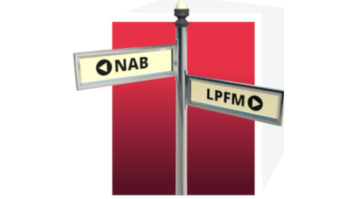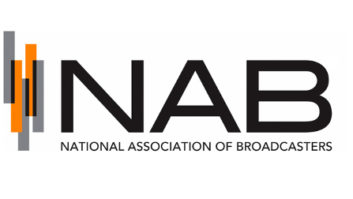The National Association of Broadcasters remains steadfast in its opposition to an increase in power for the LPFM service in the United States despite a new plan by one low-power advocate to simplify the process to boost the maximum power level for many stations from 100 to 250 watts.
REC Networks’ “Simple 250” LPFM proposal is being considered by the FCC and would amend Parts 73 and 74 of the rules to create an LP-250 class of service with an effective service contour of about 4.5 miles in addition to the current LP100 service.
However, NAB continues to argue the petition does not justify such a dramatic change to LPFM service. In reply comments filed this week the group reiterates worries over possible interference to FM translators and how a power increase would contradict the FCC’s aim to preserve the “simple nature” of LPFM.
[Read: LP-250 FM Petition Draws Lots of Interest]
NAB told the FCC granting a maximum power level of 250 watts would put LPFM stations on equal footing with 250 watt Class A stations.
“Granting REC’s request would effectively provide LPFM stations the same coverage as full-service Part 73 FM stations, but with a fraction of the obligations. Given that any LPFM entity is always free to apply for a Class A FM station, which would operate with the same radiated power as REC’s request, NAB respectfully asks the FCC to prohibit such a sidestep of its rules and dismiss the petition,” NAB commented to the FCC.
The NAB has been joined by Educational Media Foundation (EMF), the largest owner of noncommercial religious stations in the United States, arguing against adoption of the Simple LPFM plan. EMF, which also deploys a large FM translator network, has said in comments the plan under consideration would dangerously allow LPFMs to increase their power without any examination of whether it would cause actual interference with other stations.
“NAB echoes EMF’s concerns that the petition effectively ignores the potentially harmful interference that allowing LPFM power increases will cause to existing radio services,” NAB commented. And while REC asserts that its proposal will cause “only de minimis disruption” to FM radio service, NAB said it believes that characterization is unrealistic.
In particular, NAB points to concern over potential interference to FM translators. “FM translators provide vital radio service to millions of listeners in areas where direct reception of radio broadcast signals is inadequate due to distance or terrain barriers. Translators are also a lifeline for many AM broadcasters, helping them to improve fill-in service or launch first-time nighttime service,” NAB said. “Given these concerns, it is perplexing that the petition fails to even acknowledge the impact of LP-250 service on translator service.”
NAB in its most recent comments also expresses a lack of trust in how LPFM broadcasters would handle interference complaints if necessary. “A cursory glance at the FCC’s website reveals numerous instances of LPFM stations broadcasting at much higher power levels than authorized, including one station that operated at 23 times its authorized power and another that was recently issued a Notice of Violation for spurious out-of-band emissions affect air safety near the Orlando International Airport.”
The broadcast industry group also contends LPFM volunteers are often unqualified to handle technical obligations required by the FCC.
In conclusion, NAB says the Simple LPFM petition contradicts the intent of low-power FM service when it was created. “Granting REC’s proposal would also undermine the intended localized nature of LPFM service envisioned by the FCC and Congress by allowing some LPFM stations to expand their coverage area by a 100% or more and reach hundreds of thousands of additional listeners, including in some of the largest markets nationwide,” NAB commented.
Common Frequency and other LPFM advocates have subsequently filed comments asserting that some of NAB’s arguments are “not substantiated and incorrect.” Here are the FCC filings regarding the Simple LPFM proposal.











